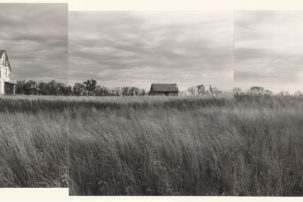We no longer have a shared future in the way that, in my American childhood, that was one of the most common parts of pop iconography. We don’t, now, have the 22nd century, an era of great promise, looming ahead of us. You never hear it mentioned; you scarcely ever see it in print. It’s the coming century, yet nobody wants to invoke it. In part that’s because we’re not all headed into the same future. But in some sense we’re not all living in the same present, either.
When I started writing Pattern Recognition (2003) I had the feeling that I no longer knew how weird the world was, and needed to get back in touch with that. It was basically set not even in the very near future, but in the year before the year it was published. And that was a deliberate move—I thought of it as trying to take the temperature of the zeitgeist. So I started something that would be as contemporary as I could make it and the weirdness of that time seemed to centre around changes in marketing. Cayce Pollard, the protagonist, is described at some point as a coolhunter, but all I really knew about that was the term. So I deconstructed the term poetically and went on from there.
It sounds as though I’m finding an advantage in ignorance—which is generally not a good idea, historically. But without ever having been sufficiently interested in or capable of learning what the people I was eavesdropping on knew about computing and its possibilities, I found the poetics of technical language a rich source in itself. I built my imaginary digital future on that. When Neuromancer (1984) was published, I was in conversation with a group of somewhat older and more scientifically minded science-fiction writers, who had already read my book and didn’t think too much of it. One of them said to me, “You know, the reason that nothing you’re proposing can ever exist is that there could never possibly be that much bandwidth.” In the meantime, nothing has increased more exponentially than bandwidth. That writer believed that bandwidth would forever be insufficient to do the sort of thing I was proposing, and that would have prevented him from writing an accurate prediction of the future. I find it a satisfying paradox. —As told to Tess Edmonson

 Jenna Sutela, Many-Headed Reading
(performance documentation), 2016. Photo: Mikko Gaestel.
Jenna Sutela, Many-Headed Reading
(performance documentation), 2016. Photo: Mikko Gaestel.






